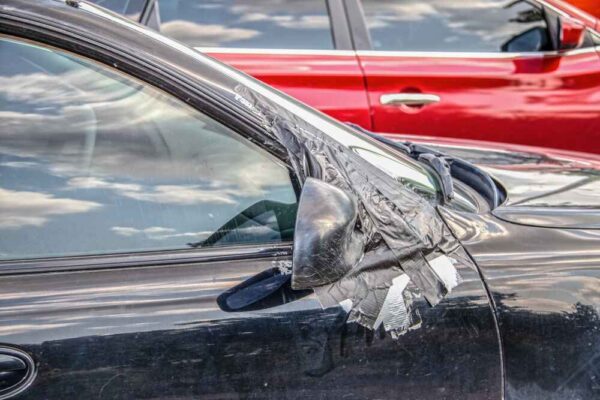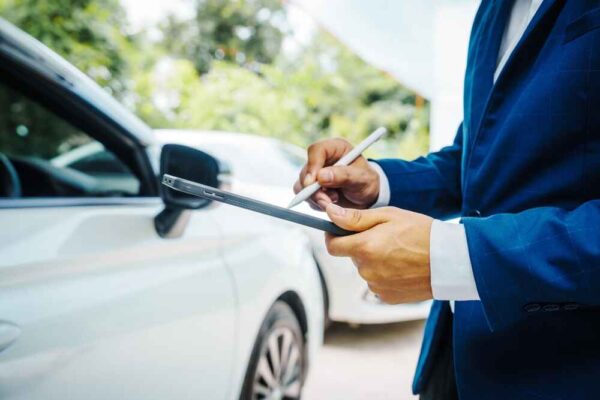
Why is My Vehicle Considered a Total Loss?
When you have an auto insurance claim a lot of things can be going through your head. First and foremost you are going to make sure that you and others around you are not injured. But what about the damage to your vehicle? Is the damage repairable? Can you still drive the vehicle? Or is your vehicle a total loss? What goes into the decision of writing-off a vehicle or considering it a total loss? There are really only two factors that go into determining if your vehicle is considered a total loss. The first is obvious, if your vehicle is damaged to the point where it will no longer be considered fit for the road it will be written-off. The second is less obvious but it comes down to the vehicle no longer being worth the cost of repair.
Vehicle is unfit for the road
In order for a vehicle to be deemed unfit for the road it has to have sustained damage that permanently compromises the safety of the vehicle. These claims typically involve damage to the frame, steering system or chassis. The eye test typically works for examining a total loss vehicle, however there can be times where the damage occurs to a portion of the vehicle that may not be visible but is an important part of the vehicle and its performance. When a vehicle is deemed unfit for the road the insurance company determines the vehicle a total loss regardless of what the cost to repair the vehicle would be.
Vehicle is no longer worth it to repair
When you insure a vehicle you are typically insuring the actual cash value of that vehicle. Unless of course you purchase your vehicle new and your insurance policy has the endorsement OPCF 43. This endorsement removes the deprecation on your vehicle for a set amount of time (typically the first 2 years of driving that new vehicle). But if your vehicle is not new or no longer qualifies for that endorsement your vehicle will be covered for the actual cash value. This means that you may have purchased your vehicle for $20,000 but now it is 8 years old and has depreciated. As the value of your vehicle depreciates over time the more likely it is to be considered a write off if it is involved in a claim. The reason for this is your vehicle is no longer cost effective to repair or the cost of repairs are going to be greater than the current market value of your vehicle.
How do I know the actual cash value of my vehicle?
There are several factors that impact the actual cash value of the vehicle. Obviously the type of vehicle is the most important factor in determining the value of the vehicle. The amount of kilometres also impacts the value. The more kilometres the lesser the value. The condition of the vehicle will also play a role. If the vehicle was kept in good condition with regular updates and a good engine that helps the value of the vehicle. If there are any customizations to the vehicles or add-ons those will also be factored. Remember if these add-ons or customizations are performance based you need to tell your insurance company.
The insurance company has a database where they can input these factors and determine the value of the vehicle. If you disagree with the actual cash value the insurance company has presented you are able to appeal. If you find a similar vehicle for sale that is more than what the insurance company offered you can present this to them and ask them to review. Of course the comparison needs to come from a reputable and trusted source such as dealership or online aggregator such as auto trader.
How much money do you get if your car is a write-off?
If your vehicle is a total loss the insurance company will write you a cheque for the actual cash value of your vehicle (minus the deductible if it is applicable). If you want to keep your vehicle despite it being considered a total loss, you do have that right but you would need to pay the amount the insurer would have received for the salvage of the vehicle.
If your vehicle is currently being leased or financed and your vehicle is deemed a total loss the insurance company will send the cheque to the leasing or financing company equal to the current market value of your vehicle. Here is the thing, if the settlement cheque is less than the amount your currently owe on the vehicle you will need to pay the remaining balance out of your own pocket.
What vehicle can I drive in the meantime?
If you write-off your vehicle you may be left without another car to drive. It is a good idea to carry endorsement 20: loss of use on your car insurance policy. This provides a rental car for you should your vehicle be involved in a claim. If you don’t have this coverage you will need to find your own means of transportation. Here is an important thing to note when it comes to the loss of use portion of your policy. Every company treats this coverage differently. Some companies assign a monetary value. Lets say on your policy you have purchase a $2000 limit in coverage for loss of use. This means you can rent a vehicle from your insurance coverage until the $2000 threshold is met. If it costs $100/day to rent the vehicle, this means you would only have coverage for 20 days before you would have to start paying out of your own pocket. Likewise some companies assign a predetermined length of time such as 30 days. Meaning there is no monetary value associated but after 30 days you would need to pay out of your own pocket if you need to continue using a rental car. This means you need to be proactive in that time frame in making plans to get yourself a new vehicle.
Hopefully you never have to experience a total loss but if you do, we are here to help!
You Might Want to Read
June 15, 2025
Sideswipe Collision: Who Is at Fault in Sideswipe Accidents?
June 15, 2025
Least Depreciating Cars in Canada
June 5, 2025
Welcome to the Team Keyes Insurance


